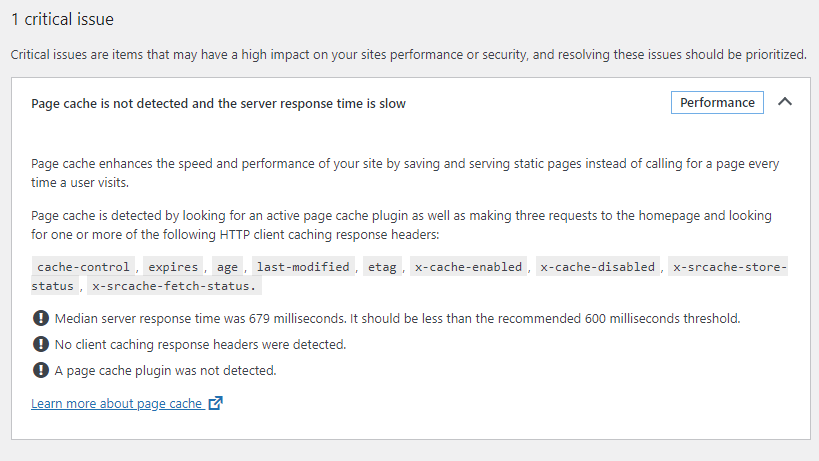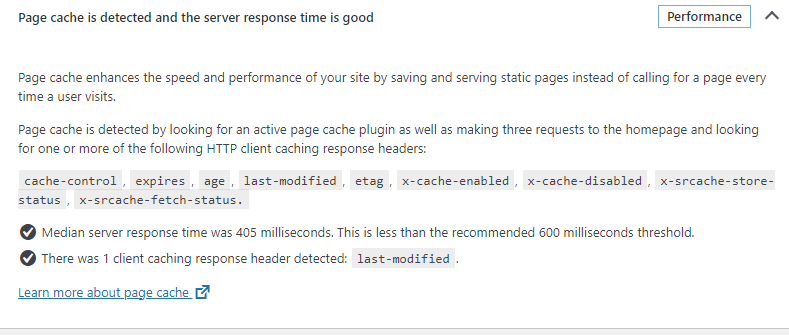Categories
WordPress Site Health tool
WordPress' Site Health Tool is a helpful tool that shows you what, if any, improvements can be made to your WordPress website. Many issues indicated can be easily fixed or remedied by performing an action. And can range from increasing the PHP version, to activating an SSL certificate. In this article we want to cover the most common issues and make them clearer. To make sure you can host your WordPress website optimally.
There are some parts that are solved differently at MijnHostingPartner.nl, because we use Windows IIS servers and not Linux. Some components like Imagick are and will not be supported. This is not a problem and will be solved in another way / software and can be ignored. So has no further impact at all.

Some further suggestions you may encounter are for example the message about Page Caching. This is not active by default, and you need to do some work yourself. The easiest way to fix this is to install a Caching plugin through WordPress. There are several options you can use for this, we have good experience with for example:
WP Fastest Cache
However, do your own further research here as to which one you find works best. To read more about speeding up your website you can also read through our other article for this.
How can I speed up my WordPress site?

Caching like GZIP and serving a static page will make your website a lot faster in almost any scenario, however, remember that Website speed can have to do with a lot of factors. For example, if you are trying to load 10 images on your home page of 1MB each, then a caching plugin will not make much difference here. It is then necessary to first optimize and resize your images where necessary. With installing WP fastest Cache on this website, the following is the result below with the most basic settings in the plugin:

So this is easy to improve with some homework, want to look even deeper into what affects your website's load time? You can use Google Pagespeeds to further optimize your website. And per resource and component to see exactly what is happening here.
Furthermore, many of the other possibilities mentioned in the site health check can be checked in our knowledge base before applying changes and improvements.
The rewrite rules given in the web.config file are also important to have processed correctly for the site health tool, things like API not being able to communicate properly are also affected by this. For this you can check the web.config for the following rules:

This should be the same as above, provided you haven't defined any other rewrite rules in it. Like the redirect to the SSL version of your website.
If you can't figure this out now, take a look at the theme you are using and the WordPress forums for suggestions to try out. Or create a ticket to the helpdesk. We will do our best to help you.